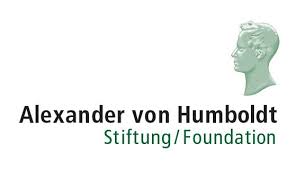The Humboldt Foundation grants up to 75 Georg Forster Research Fellowships for postdoctoral researchers from developing and emerging countries (except China and India). Fellowships are awarded to conduct a self-selected, long-term research project (6-24 months) in cooperation with a self-selected academic host at a research institution in Germany.
Scientists and scholars from all disciplines from developing countries, emerging economies and transition states (excluding People’s Republic of China and India may apply.
User Review
( vote)The Alexander von Humboldt Foundation is a foundation established by the government of the Federal Republic of Germany and funded by the Federal Foreign Office, the Federal Ministry of Education and Research, the Federal Ministry for Economic Cooperation and Development as well as other national and international partners; it promotes international academic cooperation between excellent scientists and scholars from Germany and from abroad.
Applicant must have good knowledge of German or English language.
Brief Description
- Application Deadline: June 15, 2019
- Course Level: Fellowship is awarded for postdoctoral researchers to carry out long-term research of their own choice (6 to 24 months) at a research institution in Germany together with an academic host they have chosen yourself.
- Study Subject: The research outline must deal with issues of major relevance to the future development of the candidate’s country or region of origin.
- Number of Awards: 75 scholarships are available
- Nationality: Developing and emerging countries
- Program can be taken in Germany
Eligibility
- Eligible Countries: Scientists of all disciplines from developing and emerging countries (Afghanistan, Algeria, Angola, Antigua and Barbuda, Argentina, Armenia, Azerbaijan, Bahamas, Bahrain Bangladesh, Barbados, Belarus, Belize, Benin, Bhutan, Bolivia, Bosnia and Herzegovina, Botswana, Brazil, Brunei, Bulgaria, Burkina Faso, Burma, Burundi, Cambodia, Cameroon, Cape Verde, Central African Republic, Chad, Chile, Colombia, Comoros, Democratic Republic of the Congo, Republic of the Congo, Costa Rica, Côte d’Ivoire, Croatia, Djibouti, Dominica, Dominican Republic, Ecuador, Egypt, El Salvador, Equatorial Guinea, Eritrea, Ethiopia, Fiji, Gabon, The Gambia, Georgia, Ghana, Grenada, Guatemala, Guinea, Guinea Bissau, Guyana, Haiti, Honduras, Hungary, Indonesia, Iran, Iraq, Jamaica, Jordan, Kazakhstan, Kenya, Kiribati, Kuwait, Kyrgyzstan, Laos, Latvia, Lebanon, Lesotho, Liberia, Libya, Lithuania, Macedonia, Madagascar, Malawi, Malaysia, Maldives, Mali, Marshall Islands, Mauritania, Mauritius, Mexico, Federated States of Micronesia, Moldova, Mongolia, Montenegro, Morocco, Mozambique, Namibia, Nauru, Nepal, Nicaragua, Niger, Nigeria, Oman, Pakistan, Palau, Panama, Papua New Guinea, Paraguay, Peru, Philippines, Poland, Qatar, Romania, Russia, Rwanda, Saudi Arabia, Samoa, São Tomé and Príncipe, Senegal, Serbia, Seychelles, Sierra Leone, Solomon Islands, South Africa, Somalia, Sri Lanka, Saint Kitts and Nevis, Saint Lucia, Saint- Vincent and the Grenadines, South Sudan, Sudan, Suriname, Swaziland, Syria, Tajikistan, Tanzania, Thailand, Timor Leste, Togo, Tonga, Trinidad and Tobago, Tunisia, Turkey, Turkmenistan, Tuvalu, Uganda, Ukraine, United Arab Emirates, Uruguay, Uzbekistan, Vanuatu, Venezuela, Vietnam, Yemen, Zambia and Zimbabwe) excluding China and India can apply for the fellowships.
- Entrance Requirements:
- Doctorate or comparable academic degree (Ph.D., C.Sc. or equivalent), completed less than four years prior to the date of application. Candidates who have nearly completed their doctoral degrees are eligible to apply provided that they submit the manuscript of their dissertation or publications containing the results of their dissertation, however, at the earliest, 6 months prior to the completion of their dissertation.
- Academic publications reviewed according to international standards and printed in journals and/or by publishing houses.
- Choice of a research outline of major relevance to the future development of the candidate’s country or region of origin
- Confirmation that research facilities are available and mentoring agreement and a detailed expert’s statement by an academic host at a research institution in Germany
- Expert reviews from the doctoral supervisor and one other academic qualified to give well-founded comments on the applicant’s qualification, preferably including reviewers not working at the applicant’s own institute.
- Necessary language skills: humanities or social sciences and medicine: good knowledge of German if it is necessary to carry out the research successfully; otherwise a good knowledge of English; natural sciences and engineering: good knowledge of German or English
- Citizenship as well as principal place of residence and work in a developing country, emerging economy or transition state (excluding People’s Republic of China and India, c.f. detailed list of countries). Eligible applicants must have lived in an eligible country (detailed list of countries) for a minimum of 12 months in the 18-month period prior to submission of the application. If you are not resident in an eligible country at the time of application, you must additionally have a permanent job in one of the countries on the list of countries
- Eligible applicants must have lived outside Germany for a minimum of 12 months in total in the 18-month period prior to submission of the application.
- English Language Requirements:
-Natural scientists and engineers: good knowledge of German or English is sufficient.
-Scholars in the humanities and social sciences: should have knowledge of German if it is necessary to carry out their research successfully. In this case, a German language certificate confirming proficiency must be submitted. Otherwise, a good knowledge of English is sufficient.
-Physicians: If the research involves work with patients, the candidate must have a good knowledge of German (language certificate required). Otherwise, a good knowledge of English is sufficient.
Application Procedure:
How to Apply: Applications can only be submitted online (Application Form). The completed application form, including the necessary additional documents, should be submitted at least four to seven months ahead of the prospective selection date.
Award
The fellowship is worth 2,650 EUR per month. This includes a mobility lump sum and a contribution to health and liability insurance. Additional benefits for research fellows:
-
- Lump sum for the fellow’s return travel expenses if the costs are not borne by a third party;
- Language fellowship for an intensive language course lasting two to four months at selected language institutes in Germany immediately prior to the actual period of research; language fellowships may also be granted to accompanying marital partners; – family allowances for accompanying family members staying at least three months (monthly allowance: up to 326 EUR for marital partners and up to 240 EUR for each child);
- For single-parents: flat-rate allowance for accompanying children (under the age of 18) for stays of at least three months (400 EUR per month for the first child and 100 EUR per month for every additional child); – additional extension of the fellowship up to 12 months for research fellows accompanied by children under the age of 12;
- A subsidy towards research costs to be paid to the hosts in Germany amounting to 800 EUR per month (for research in the natural sciences and engineering) and 500 EUR (for research in the humanities and social sciences);
- Europe allowance for a research stay at a research institute in another European country (though not the research fellow’s own country); for a designated period in the course of the fellowship if necessary to ensure the success of the research;
- Extensive alumni sponsorship once a successful research stay has come to an end, especially for maintaining contacts with collaborative partners in Germany during the Humboldtian’s entire academic career.


